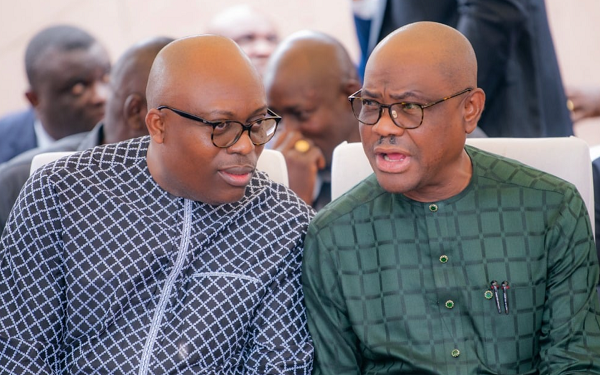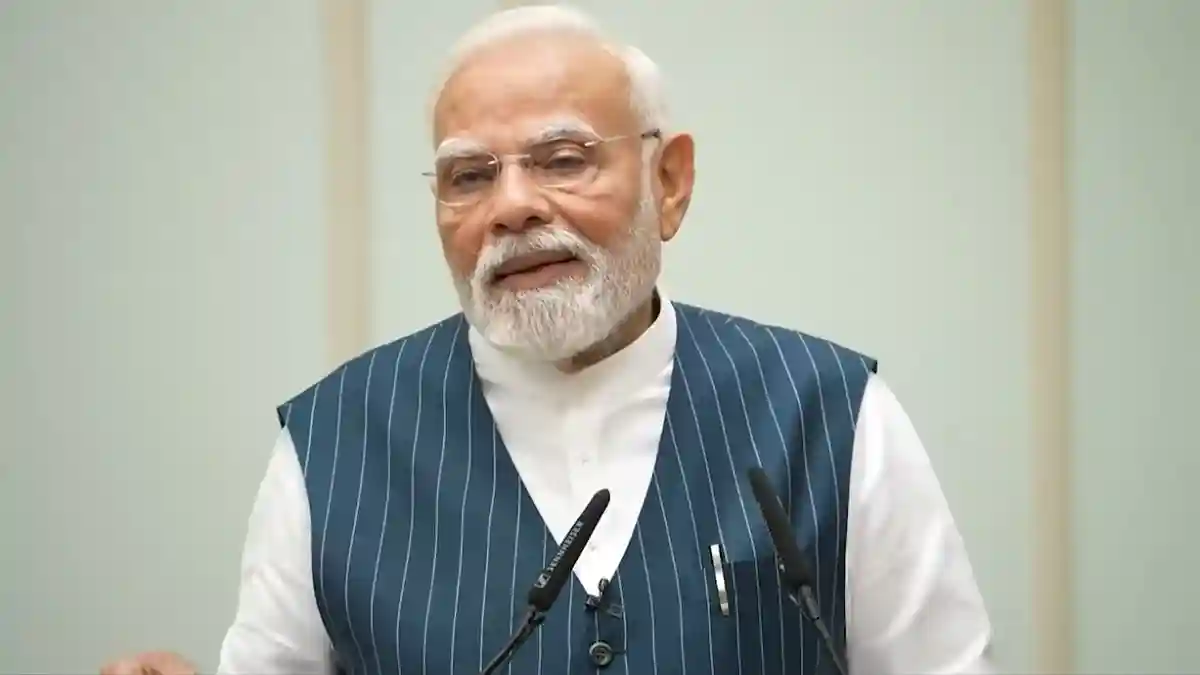By Tope Omogbolagun
Copyright businessday

When Senator Natasha Akpoti-Uduaghan strode back into the red-chamber after six months of enforced exile, it was like the poise of someone who had won a long-drawn battle.
Although she appeared visibly stressed, her once radiant skin now darker, with the glow noticeably dimmed, and her frame slimmer as though she had been on an unplanned weight-loss journey; it was impossible to miss the aura of someone who had weathered storms.
Her countenance carried the heaviness of the battles fought in the last six months, a silent testimony to the toll that political exile can exact on even the most resilient personalities.
She did not need to utter a word; her appearance alone told the story of struggle, isolation, and the bruising reality of being pitted against the very institution to which she belongs.
Read also: ‘I owe no apology,’ says Natasha as she returns to Senate after six-month suspension
Her suspension, which many analysts considered excessive, ended not with a reconciliatory handshake but with the Senate choosing peace and progress.
But now that the doors to her office have been unsealed, the real question emerges: what next for Natasha?
The political theatre of the Nigerian Senate does not run on sheer determination; it runs on numbers, lobbying, alliances, and, sometimes, stomach infrastructure.
And this is where Natasha’s road gets rough. For a senator who has managed to alienate not only her state caucus but also the broader Senate leadership, the return is not exactly a warm homecoming.
In fact, if the Senate had a high-school-style cafeteria, Natasha might find herself sitting alone at lunch.
The Parliament across the globe is not just about motions, bills, and oversight hearings.
It is an intricate dance of relationships. Behind every “aye” chorus lies hours of corridor negotiations, subtle exchanges, and sometimes, the promise of favours yet to come.
For Natasha, this dynamic presents a challenge. She is returning to a chamber where her name has been associated with confrontation. Her fallout with fellow Kogi lawmakers during her suspension drama was not just a minor squabble—it was a full-blown family quarrel acted out in public.
For a legislature where state caucuses often form the first line of defence for any member, Natasha may find herself stripped of the most important political shield in the chamber.
Bills and motions rarely pass on the merit of their contents alone. They survive on the goodwill of colleagues willing to queue behind the sponsor.
Without allies, Natasha’s legislative proposals risk being dead on arrival, no matter how brilliant. And this is where her constituents might begin to feel the pinch.
Read also: Natasha resumes at N’Assembly after six months
Representation, at its core, is about delivering for one’s people. For Kogi Central, Natasha’s return should ordinarily mean renewed energy for advocacy, lobbying, and securing federal presence in a state often overlooked.
But the truth is harsh: with her current strained relationships, the senator may struggle to push through constituency projects, attract federal allocations, or even get committee support for oversight issues that touch her people directly.
Her constituents may not care much about the politics of the chamber; they just want roads, jobs, hospitals, and electricity. But politics is the currency of delivery in Abuja. If Natasha cannot build bridges, her people risk being bystanders in the legislative bazaar where projects are bargained for like pepper in a Lagos market.
It is not impossible for her to recalibrate, but she would have to decide whether to remain the fiery lone ranger or adopt the cloak of pragmatism that most Nigerian politicians eventually wear.
Let’s be honest: the Senate is not exactly waiting for her return with confetti. Most colleagues would rather avoid open association with her for fear of antagonising the powers that be. Even her natural allies, the opposition bench, are not guaranteed companions; after all, survival in the chamber sometimes demands selective amnesia.
So, Natasha has two choices. She could embrace isolation, wearing it like a badge of honour and continuing to play the role of the outspoken dissenter.
This would keep her in the headlines, perhaps even raise her profile digitally, but it would do little for her legislative scorecard. Nigerians love a good fighter, but they also love roads and boreholes.
Alternatively, she could attempt reinvention. That would mean swallowing some pride, extending olive branches (or at least chewing sticks), and patiently rebuilding relationships, even with those she once clashed with. In the Senate, yesterday’s foe can become tomorrow’s godfather of your motion.
The trick lies in learning to lobby without losing one’s voice.
There is, of course, a certain comedy in imagining Natasha’s new parliamentary life. Picture her rising to present a motion on health facilities in Kogi Central, only to be met with the kind of stony silence usually reserved for unpopular bills.
The Senate President calls for a voice vote, and the “ayes” sound like a whisper compared to the thunderous “nays.”
Read also: VIDEO: Senate unseals Natasha’s office
Such scenarios, while exaggerated, capture the reality that the chamber often thrives on camaraderie, however shallow. Without it, motions float like kites without wind.
The role of Senate President Godswill Akpabio cannot be ignored. Natasha’s return was not his design; it was a forced compliance to public outcry.
And in politics, enforced outcomes rarely translate into genuine acceptance.
However, Akpabio also understands optics. A perpetual witch-hunt against Natasha could make her a martyr figure, and no ruling class enjoys breeding martyrs.
The leadership may therefore adopt a more subtle strategy: starve her of influence, which has started by stripping her of committee chairmanship, letting her motions die quietly, and allowing time to reduce her relevance.
For the people of Kogi Central, this episode is bittersweet.
On one hand, they have a senator unafraid to challenge authority, a rare trait in a political environment dominated by deference and “yes sir” choruses.
On the other hand, her current isolation could translate into fewer developmental dividends. Abuja politics is transactional, and if your senator is not buying or selling in the market, your constituency may return home empty-handed.
Yet, all is not lost. Natasha remains a vocal figure with media reach. She could leverage that to pressure government agencies into action for her people, bypassing traditional Senate horse-trading.
But that path requires consistency and creativity, and it is not guaranteed to yield as much as the conventional legislative hustle.
Natasha Akpoti-Uduaghan’s return to the Senate is less a victory lap and more a new round of political chess.
Read also: FCT high Court adjourns defamation case as Natasha challenges validity of charges
She is back in the chamber, but she must now navigate its unfriendly terrain with caution. Whether she emerges as a marginalised backbencher, a resilient lone fighter, or a reinvented consensus-builder will depend on her next moves.
For now, her fate hangs between two truths: the Senate thrives on alliances, and Natasha currently has few. Unless she finds a way to mend fences, her motions may continue to die quietly, her bills may never see the light of passage.
The Senate has given her back her seat; whether she can turn it into influence is the next drama Nigerians will be watching.
And if nothing else, one thing is certain: with Natasha in the chamber, the red-carpeted floor of the Nigerian Senate just got a little more interesting.



